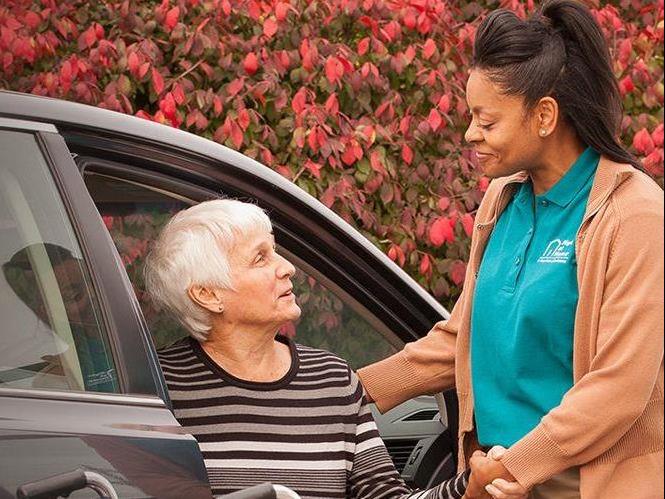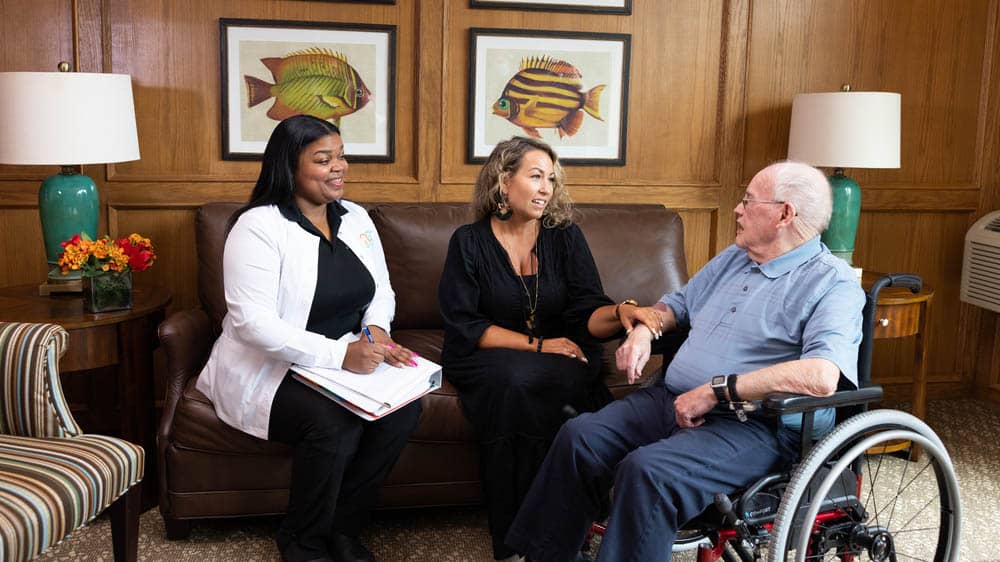

Right at Home Shares 10 Tips for Winter Safety
Consistently wearing the right shoes, preparing for power outages and stocking up on prescription medication are a few ways seniors can stay safe this winter.
Here are Right at Home’s top 10 winter safety tips:
1. Watch Your Step
Look where you’re going when walking. Assume that all wet and dark areas on pavements are slippery and icy. Ice can be hidden underneath a layer of light snow. Test potentially slick areas by tapping your foot on them first. If you must walk up or down a hill, consider walking along its grassy edge for better traction, and always look for something to grab onto in case you start to lose your balance. Adding salt, sand or cat litter to driveways and sidewalks can provide a layer of slip-free protection.
2. Choose Your Shoes Wisely
Most winter boots do not keep people upright in slippery conditions. Wear high-traction shoes and boots when venturing outdoors on walks or errands. Shoes and boots with good traction and non-skid soles can mitigate your fall risk, as can walking only on cleared pathways.
3. Learn to Walk Safely
Instead of walking your usual way, walk like a penguin. Take short, flat-footed baby steps, pointing your feet out slightly while spreading your body weight as evenly as possible over the entire surface of your feet. Walking sideways also helps increase your base of support and balance. In both instances, make sure your knees are slightly bent when walking.
Pro tip: Keeping your hands in your pant or coat pocket for warmth while walking decreases the ability to maintain balance. Make sure you wear gloves and keep both arms by your sides when walking. If you slip, this allows you to quickly extend your arms outward and regain balance. This also helps cushion the impact of falling and decreases the risk of a hip fracture if a fall does occur. If you must carry something in your hands when outdoors, try to keep it light. Better yet, wear a backpack.
4. Dress for Warmth
Cold temperatures can lead to frostbite and hypothermia, a condition in which body temperature dips too low. According to the Centers for Disease Control and Prevention, older adults with inadequate food, clothing or heating are among the most common victims of hypothermia. Make sure to dress in layers and do not let indoor temperatures go too low. If you need to step outside, wear warm socks and a warm hat, a heavy coat, gloves, and a scarf. In very cold temperatures, cover all exposed skin. Use a scarf to cover your mouth and protect your lungs.
5. Prepare for Power Outages
In many parts of the country, winter storms can knock out power lines from time to time. To stay warm during an outage, consider having a backup generator to allow access to a heat source. Also, keep plenty of blankets and sleeping bags so you can bundle up. Stockpile water and nonperishable food so you’ll have supplies available in case of an extended outage. You can fill your bathtub with water to flush toilets and for general cleaning.
6. Check on Your Prescription Medication
If you’re taking any prescription medication, make sure you have an adequate supply on hand at the first sign of extreme weather. You may have an auto-prescription enabled, but extreme weather can prevent you from picking up your medication. If you’re running low on important medications, contact your pharmacy benefits management company to see if they can expedite the shipment. You can also have your doctor call in your prescription to a local pharmacy.
7. Power Up for the Storm
Don’t forget about batteries! Make sure you put new batteries in flashlights, lanterns and radios. Have spare batteries available, too. Don’t forget to charge your phones and computers, including auxiliary power sources.
8. Create an Emergency Contact Plan
Have a plan in place to reach family members and friends if you lose phone and/or internet service. Keep important phone numbers written down in case you can’t access them on your cellphone or computer. Consider staying with a family member or neighbor if an incoming storm is expected to be severe.
9. Prevent Carbon Monoxide Poisoning
Using a fireplace, gas heater or gas lanterns can lead to carbon monoxide poisoning. Ensure your safety by checking the batteries in your carbon monoxide detector and buy an updated detector if necessary.
10. Don’t Be Afraid to Ask for Help
The most important tip to keep in mind during the colder months is to ask for help. If you need to clear your property of snow and ice, do not hesitate to ask a family member or neighbor or to hire a professional. Arrange rides to the grocery store and doctor appointments. Many communities have shuttle services specifically for seniors. Don't be afraid to reach out for help!






